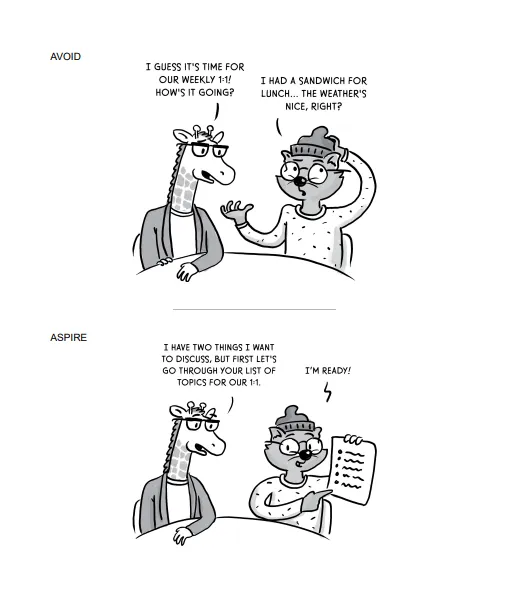
Good Morning All!
Welcome back to my morning routine. I wasn’t feeling well after teaching a class last night, so I decided to skip jogging today and just rest. However, I’m still sticking to my one-hour morning reading session.
So, welcome back to my morning reading book session! It's my new habit to get back into reading after my healthy morning.
Without further ado, we’re now diving into Chapter Three, titled "Leading a Small Team." At the beginning of this chapter, we're treated to an interesting illustration:

“Managing a small team is about mastering a few basic fundamentals: developing a healthy manager–report relationship and creating an environment of support. In this chapter, we’ll dive into the specifics of those skills.”
Julie Zhuo starts by exploring a question that many of us might find complex: What leads people to do great work? Andy Grove, in his classic "High Output Management," simplifies this by flipping the question: What gets in the way of good work? According to him, there are only two possibilities:
- People don’t know how to do good work.
- They know how, but they aren’t motivated.
The first step to addressing any concerns about lackluster work is diagnosing the people issues behind it. Is it a matter of motivation or skill? This doesn’t have to be complicated. You can understand this through a series of conversations with your team members.
Anton Chekhov once said, “You must trust people, or life becomes impossible.” This is true for all relationships—friendships, marriages, partnerships—and the manager–report relationship is no different.
My Thoughts
I found this morning's reading session to be quite enlightening. It reminded me of some fundamental aspects that we often overlook when we’re given the responsibility to manage others. Here are my thoughts on the key points:
Building Trust: Chekhov's quote about trust really resonated with me. Trust is the foundation of any healthy relationship, including the one between a manager and their team. Without trust, communication breaks down, and collaboration suffers. As managers, we need to consistently show that we are reliable and have our team's best interests at heart.
Diagnosing Issues: Andy Grove’s perspective on what gets in the way of good work is very practical. When we see poor performance, it’s crucial to identify whether it’s due to a lack of skills or motivation. This approach simplifies problem-solving and helps us address the root cause effectively.
Motivation vs. Skill: Understanding whether an issue is about motivation or skill can significantly impact how we support our team members. For skill gaps, we can provide training and mentorship. For motivation issues, we need to understand individual drivers and find ways to inspire and engage our team.
Overall, these insights are a valuable reminder of the basics of good management. It's easy to get caught up in day-to-day tasks and forget these foundational principles.
This chapter has been a great refresher on the importance of trust, clear communication, and understanding the needs of our team.
So far, that's my reading progress for this morning. I hope it provides some new insights for you as well. See you in the next part! If you have any recommendations for management books, please leave a comment below.